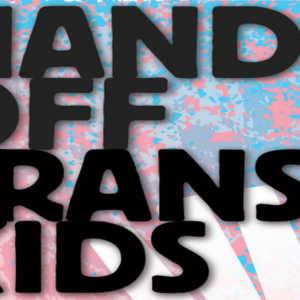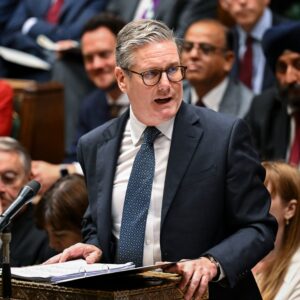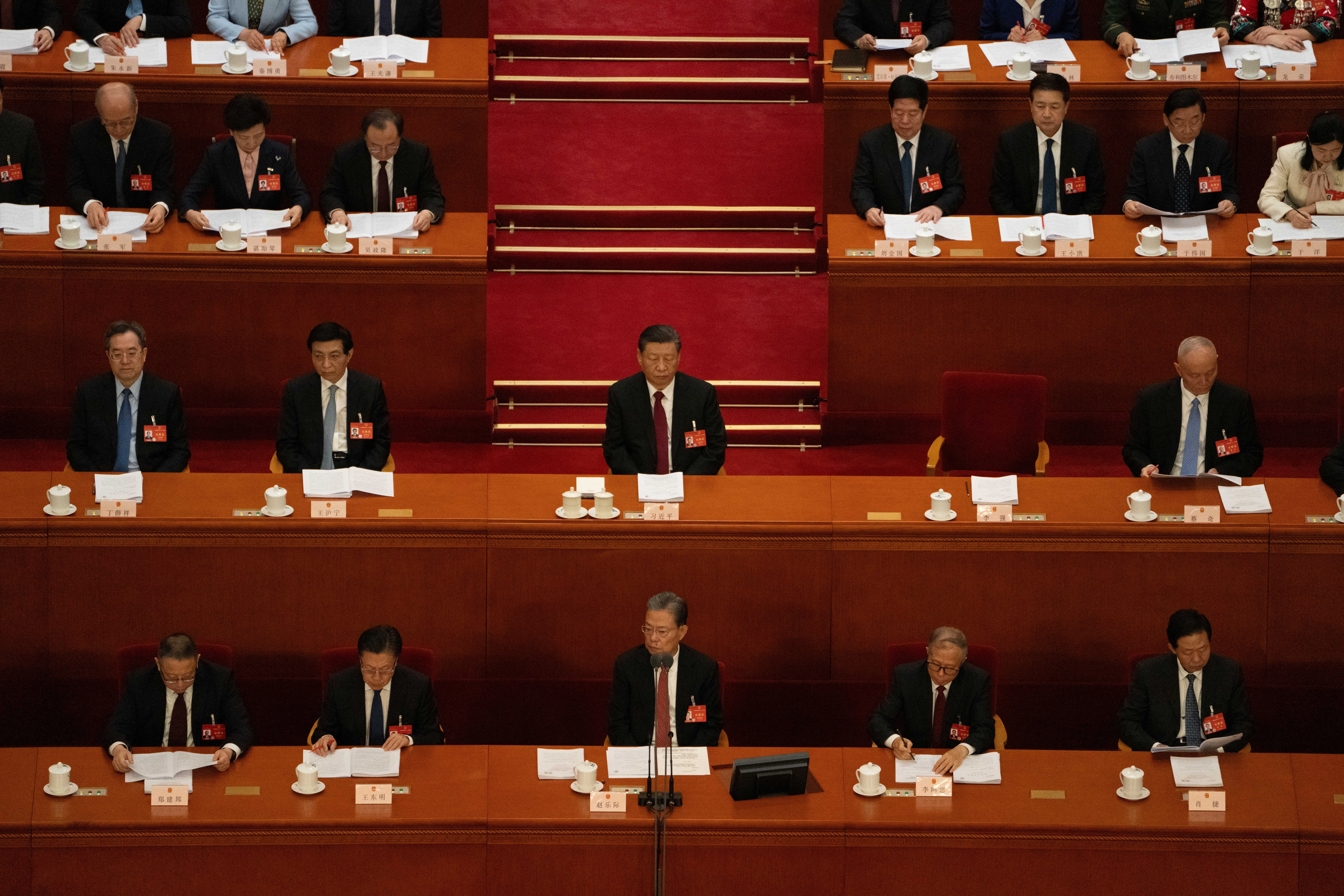Source >> Nation/Cymru
Hefin David MS is currently campaigning for scrapping free school meals for all primary school children, a policy that saves families £764.30 per child per year during a cost-of-living crisis.
The status quo Hefin David wishes to return to saw Wales suffer the least generous provision of free school meals to poor children of any of the UK’s four nations: Over half of children in poverty were being denied the right to free school meals by the Welsh Government, with a child living in poverty in England under the Tories having a better chance of getting free school meals than in Wales under Labour.
Hefin David argues that the Welsh Government has been forced to axe its programme extending free school meals to the poorest children during the holidays to fund free school meals for all primary school children.
He offers no explanation why he singles out this particular expenditure as responsible rather than any other areas of Welsh Government spending.
If he were to go through every line of Welsh Government expenditure he could surely find things far less worthwhile to spend money on than free school meals, for example, the use of Welsh public money for endless pay-outs, bail outs, and write offs to private companies sometimes amounting to millions.
‘Where there is no vision, the people perish’
Socialists do not simply look at budgets from an accountant’s perspective of balancing the books, but politically: How do we mobilise the public imagination behind better ways of organising society.
Hefin David’s recent article displays a failure of vision in grasping the importance of a national free food programme, rooted in the socialist principle of universalism, that challenges the ruling ideology of neoliberal Britain by providing free school meals for all school students, not just poor school students.
He fails to recognise that universal free school meals are part of broader socialist agitation, showing in practice there is an alternative to Tory Westminster.
Afterall if we can successfully use this model in feeding our nation’s children, why not re-organise society more widely along universal lines to meet basic needs? But, of course, the politicians crowing most against universal free school meals do not oppose Labour’s return to being an austerity party, and so have given up on any sweeping progressive change, it’s all a race to the bottom for them, so they do not understand the transformative nature of the policy.
In this article I wish to make three arguments
- We face a hunger and poverty crisis.
- Universal free school meals have been proven to be better than means-tested systems not only for the poorest, but our entire society.
- Universal free school meals can be the basis for a broader transformation of our food systems and society.
Hunger and Poverty Crisis
To understand the urgency of universal free school meals is to recognise the scale of our social emergency. Wales is the poorest country in the UK, with the highest rates of poverty and low pay, this includes the highest rate of child poverty with almost a third of Welsh children in poverty.
Across the UK neoliberalism and austerity has created levels of poverty and hunger previously unthinkable in post-war Britain.
Cases of hospitalisation for malnutrition have quadrupled since the economic crisis of 2007/8 with doctors seeing more cases of Victorian poverty diseases like scurvy and rickets once thought eradicated.
Children raised under UK austerity are shorter than their European peers, with a poor national diet and NHS cuts blamed for stunting growth.
The Food Foundation reported in January that more than 1 in 5 (22%) UK households had skipped meals, gone hungry, or not eaten for a whole day.
In 2010, there were 50 Trussell Trust food banks. Now there’s 1,400 Trussell Trust food banks and 1,200 independent food banks, plus countless more food poverty projects providing subsidised food. Infamously, Britain now has more food banks than branches of McDonalds.
Recently a food bank in Hefin David’s constituency ran out of food and feared having to close, many others are struggling to meet demand. Charity rather than the welfare state becoming the last line of defence against destitution must not be normalised.
Food price inflation is running at record rates with the increased cost of the weekly shop hitting low-income families hardest. Yet supermarket chains and agribusinesses continue to make substantial profits. With the UK importing half of its food from abroad – in Wales only two percent of the fruit and vegetables we eat are grown here – we must start building new local food systems resilient to global shocks such as climate change, war and economic crises.
Universal Free School Meals: An Idea Whose Time has Come
In a growing number of countries free school meals are for all school students, not just poor school students. Finland, Sweden, Estonia, India and Brazil are among the world’s nations to have embraced universalism over means-testing.
With inequality and food poverty soaring after years of neoliberalism and austerity, and the pandemic highlighting how fragile many safety nets have become, universalism is now gaining wider currency on the global left.
For two years during the pandemic, all U.S. state school children, over 50 million children, received daily free breakfast and lunch. Since the programme was scrapped, eight states – California, Colorado, Maine, Michigan, Minnesota, New Mexico, Vermont, and Massachusetts – have decided to continue and legislate universal free school meals on a permanent basis.
Meanwhile Bernie Sanders and Ilhan Omar are campaigning for a Universal Free School Meals Bill to guarantee all school students free breakfast, lunch, dinner and a snack.
In the UK, Scotland like Wales is currently in the process of rolling out free school meals to all primary school children. England and Scotland have had a Universal Infant Free School Meal Programme feeding children under 7 since 2014/15.
Four London Councils – Tower Hamlets, Newham, Islington and Southwark – have already been giving free school meals to all primary school children funded from their own budgets, recently joined by Westminster. London’s Labour Mayor Sadiq Khan has announced that all primary school children will be eligible for free school meals from September for one year as a cost-of-living crisis measure.
Tower Hamlets Council under Mayor Lutfur Rahman and the Aspire Party have announced all primary and secondary school students in compulsory education will be eligible for free school meals from this September, the first place anywhere in Britain to deliver universal free school meals.
Under Jeremy Corbyn, the UK Labour Party had a policy of universal free school meals for all primary school children, since dropped under Starmer.
In England, the National Education Union’s ‘No Child Left Behind campaign’ for free school meals for all primary school children has been backed by the Daily Mirror, the TUC and trade unions, charities, 26 council leaders and Mayors, leaders of all the major faith groups, anti-poverty and health groups, and figures from the world of sport.
Universal free school meals are now recognised internationally as a key tool in eradicating child hunger. Over 80 countries have signed the School Meals Coalition declaration calling for universal free school meals by 2030, with support from the UN World Food Programme (WFP), Food and Agriculture Organization (FAO), the UN Educational, Scientific and Cultural Organization (UNESCO), the UN Children’s Fund (UNICEF), and the World Health Organization (WHO).
Universalism vs Means Testing
There are now many case studies internationally showing better outcomes for society from universal school feeding programmes. Universal programmes dispense with the stigma and bureaucracy associated with means-tested benefits so generally see greater take up from the poorest.
Other proven benefits include improved public health and nutrition, better classroom concentration, improved school atmosphere and social solidarity, and importantly reduced obesity rates for both middle class and poor children.
During austerity, poverty, hunger, poor diets and poor nutrition has also led to a decline in dental health in Britain, leading to dentists campaigning for universal free school meals.
The chair of the British Dietic Association arguing, “Tooth decay is the number one reason for hospital admissions among young children, and bad diets are fuelling it. Free school meals is simple step that would put prevention to work in every school in this country.”
Obesity: Packed Lunches vs School Meals
Wales has the highest rates of childhood obesity in the UK. Among the countries of Europe, Wales suffers the second highest rate of childhood obesity in Europe, with only Malta performing worse.
Universal free school meals, especially if better health and nutritional standards were established, could play a central role in eradicating child obesity in Wales.
Dr Charlotte Evans, a nutrition and public health expert based at Leeds University, has extensively studied children’s packed lunches, while her research concentrates on England, the picture in Wales is likely to be similar. She argues bluntly, “Children who take a packed lunch into school are at a greater risk of not getting sufficient nutrients compared to classmates who have a school meal.”
In her most recent study published in 2020 she found that less than 2% of primary school children’s packed lunches met the nutritional standards required for cooked school meals.
Among her shocking findings were
– 4 out of 5 packed lunches had no vegetables or salad in.
– Two-thirds of packed lunches had higher sugar levels than recommended amount.
– Over half contained too many sweet snacks.
– Many children had no dairy foods failing to meet recommended amounts of calcium.
– Many packed lunches failed to meet standards for vitamin A, vitamin C and zinc, due to lack of fresh fruit, vegetables, salads, unprocessed meat or fish.
She expressed fear that with the cost-of-living crisis the nutritional standards of packed lunches would plummet further with families forced to cut back on food expenditure.
Case study: Universal Infant Free School Meal Programme
In 2014, the Coalition Government introduced universal free school meals for all infants in reception, years 1 and 2. The Scottish Government quickly followed, but Welsh Labour consistently refused our children the same support.
Researchers at Essex University found universalism had a number of social benefits missing from means-tested programmes. There was a fall in obesity rates not only for the poorest children, but also for middle class children, as school meals were more nutritionally balanced than what they had been bringing in their packed lunches.
The policy was massive popular among families of all social classes, with 80-90% of all school students choosing to have school meals when they became universal and free. There was a small rise in uptake among the poorest school students, but the most dramatic rise was among school students previously ineligible for means tested free school meals.
Under means testing around a third of school students ineligible for free school meals regularly paid for school meals, under the universal system uptake for free school meals in this demographic rose to around 85%, a 50% point increase.
Rates of school absences, particularly those due to illness, fell. Educational attainment improved. The savings to the family budget were significant with parents saving over £400 per year per child. This is vital for those low-income families falling in and out of entitlement owing to the complexities of Universal Credit.
Case Study: Universal Free School Meals for Primary School Children
In 2013, a study looked at pilots of universal free school meals for all primary school children in Durham and Newham.
Researchers found the pilot, “had a significant positive impact on attainment.” Children in the pilot areas did better in all subjects than similar children in areas where there wasn’t a pilot. The differences became “positive and significant” by time pupils reached Year 6, the equivalent to two months’ expected progress at this stage.
Case Study: New York City
Studies of universal free school meals in New York City found increased uptake from poorer students when the meals were no longer means tested – under means tested free school meal programmes around a third of eligible children had not taken up the offer. Universal free school meals also led to reducing bullying and fighting in schools, with poorer school students reporting feeling safer in cafeterias where previously they had been daily identified as being poor.
There were improvements in test scores and academic achievements with researchers suggesting universal free school meals were ‘ an inexpensive and effective way to improve academic achievement among urban school children’.
Case Study: Sweden
A study by Lund University in Sweden exploring the gradual roll out of universal free school meals to parts of Sweden between 1959-1969 found that children in the universal programme grew taller than children in means-tested programmes, showed improved health in early adulthood, had better educational attainment and were more likely to go to university, and enjoy a higher lifetime income – poor children benefited the most seeing the biggest increase in lifetime income.
During the period Sweden was introducing universal free school meals, it’s strong welfare state meant that food poverty was not a significant social issue, which also points to other social benefits, ‘the program was thus not aimed at poverty relief or affecting caloric intake but rather at improving the nutritional intake of children.
Another important motivation behind the school lunch program was to ease the burden on households, and especially on mothers, by releasing them from the task of providing school meals. It was believed that the program would increase the female labour market participation rate and potentially improve household finances.’
Case Study: Finland
Universal free school meals should not be seen as a policy in isolation, but rather as part of a wider package of reforms to establish the Right to Food. Finland is the pioneer of universal free school meals, with the longest-running free-of-charge school feeding programme in the world. For over seventy years since 1948, the Finnish welfare state has given all school students up to age 16, a hot nutritious daily free school lunch.
Free school meals are now the healthiest meals that children and young people will eat daily, carefully designed to support health and provide energy for studies. Food is locally sourced and Finnish law demands that half of the plate be filled with fresh and cooked vegetables. School meals are part of the national curriculum and seen as a pedagogical tool for distilling good nutrition and eating habits, and increasing consumption of vegetables.
Teachers, school staff, parents and school students are all involved in planning, designing, implementing and evaluating the delivery of universal free school meals.
But Finland shows how universal free school meals can lay the foundation for transforming food cultures more widely in a society.
In the 1970s when the post-war generation of Finns accustomed to universal free school meals entered the workforce they came to expect the same at work leading to the rapid spread of workplace canteens.
Almost a third of Finnish workers regularly sit down together to eat lunch at a canteen at their workplace. These lunches are usually subsidised by the employer to make them cheaper, and provide healthy and nutritious meals. Workers who eat at a workplace canteen have a healthier diet than those who do not. Subsided work canteens also save workers a considerable sum of money annually.
In Finland, two-thirds of school students go on to study at university for free, compared to the UK where 37.5% of school students go on to study at university suffering the highest fees in Europe. In Finland, tuition fees do not exist for either undergraduate or postgraduate courses.
For over forty years Finland has had a meals subsidy programme for university students offering cheap hot nutritious meals at students’ restaurants, currently just over £2 per meal, to all students.
Under guidelines from the government’s social security department, Kela, and the state’s National Nutrition Council, the meals should supply around a a third of students daily energy requirements, and alongside the main course, include salad, bread and a drink.
A student health survey found students who went to a student restaurant for their main meal of the day were most likely to achieve a healthy diet. Student restaurants and subsidised meals are tremendously popular with 80% of Finnish students having eaten at a student restaurant.
Case Study: Lessons from Brazil
Free school meals for all primary school children was enshrined in 1988 in Brazil’s constitution drawn up during the transition to democracy after almost two decades of military dictatorship. In 2009, Brazil adopted universal free school meals for all ages with almost 50 million children, quarter of Brazilians, being fed by the world’s second largest feeding programme.
This was part of a wider ‘Zero Hunger’ programme launched in 2003 under Lula to eradicate food poverty in Brazil that included direct payments to the poorest families, publicly funding low-cost restaurants and state-run food banks, education on healthy eating habits, distribution of vitamins and iron, and also supporting small scale farmers.
Under Brazilian law, 30% of the ingredients for free school meals must be sourced from local, small family farms, rather than the country’s big industrial farms. By providing some four million small farmers with a steady income it has enabled them to put food on the table and boosted the rural economy.
The programme also employs 8,000 nutritionists nationwide to ensure food is nutritious and healthy.
Another innovation is a growing movement of school gardens where some food is grown for free school meals. Children get to choose what ingredients go into their meals, but the real aim is to educate the children about where food comes from and to promote healthy eating of fruits and vegetables at school and home.
School meal standards in Brazil require that 75% of the food purchased for meals must be minimally processed. In contrast, ultra-processed foods make up almost two-thirds of Britain’s school meals with ultra-processed foods providing the majority of calories.
The roll out of free school meals to all primary school children provides an opportunity for more state intervention to improve standards in free school meals to boost our nation’s nutrition, perhaps taking inspiration from Rome where 70% of food in school meals is organic.
Food Sense Wales have been doing important research in Wales about how free school meals could source vegetables locally, helping children to eat more vegetables and boosting local food production and food sovereignty.
Food and Democracy
True democracy extends beyond the corridors of power. It recognises that access to basic necessities, such as food, is essential for individuals to fully participate in society and exercise their democratic rights. The welfare of our citizens is not an afterthought, but a fundamental aspect of a functioning democracy.
Universal free school meals are a cornerstone of rebuilding a comprehensive welfare state. They address inequality, not just by providing meals, but by nurturing a culture of community, breaking down barriers, ensuring no child feels stigmatised due to economic circumstances, and proclaiming every child has an equal right to thrive and succeed.
The provision of nutritious meals not only relieves the burden on struggling families but can foster an environment where every child feels valued, included, and supported.
Implementing universal free school meals requires a comprehensive approach that addresses the root causes of food insecurity. It necessitates investing in sustainable and locally sourced food, while also promoting education on nutrition and healthy eating habits.
By doing so, we not only ensure that children have access to nourishing meals, but also equip them with the tools to make informed choices about their health and well-being.
Food, like art, has the power to transcend boundaries and touch the core of our humanity. To feed someone is to give them hope, recognition, care, to affirm that their existence matters. In this wondrous tapestry of life, we must reject notions that universal free school meals are a burden on our economy.
Rather, they serve as a beacon of hope, a testament to our shared humanity. They break the chains of poverty and nourish not only the bodies of our children but their spirits and minds as well.
Universal free school meals are not a gift to be granted; they are a right to be guaranteed. They are a recognition that no child should go hungry, that no child’s educational opportunities should be compromised due to financial circumstances. The right to food is not just about filling empty stomachs, but about ensuring a society that values human dignity and social solidarity.
Art (47) Book Review (102) Books (106) Capitalism (64) China (74) Climate Emergency (97) Conservative Government (90) Conservative Party (45) COVID-19 (43) Economics (36) EcoSocialism (48) Elections (75) Europe (44) Fascism (52) Film (47) Film Review (60) France (66) Gaza (52) Imperialism (95) Israel (103) Italy (42) Keir Starmer (49) Labour Party (108) Long Read (38) Marxism (45) Palestine (133) pandemic (78) Protest (137) Russia (322) Solidarity (123) Statement (44) Trade Unionism (132) Ukraine (324) United States of America (120) War (349)
The Anti*Capitalist Resistance Editorial Board may not always agree with all of the content we repost but feel it is important to give left voices a platform and develop a space for comradely debate and disagreement.
Latest Articles
- France after the elections: How should the radical left act?In the wake of the National Assembly’s dissolution and new parliamentary configuration, La France Insoumise (LFI) should adopt a clear stance of radical opposition, emphasizing its commitment to anticapitalist principles and democratic reforms while avoiding any compromise with the existing government unless it secures absolute majority support from the populace, argues Gilbert Achcar.
- Why Socialists Oppose the Two‑Child Welfare CapIn this article, Simon Hannah explores why socialists vehemently oppose the government’s two-child welfare cap, arguing that it stems from austerity measures and reactionary views on the poor.
- Hands off Trans KidsA pamphlet from Anti*Capitalist Resistance.
- Two Child Benefit RevoltDave Kellaway responds to the revolt by Labour MPs and others to the Labour government keeping the Tories’ hated two child benefit cap.
- The beginning of the end of China’s rise?This is the second interview in a two-part series. The first interview (“Opposing US militarisation in the Asia-Pacific should not mean remaining silent on China’s emerging imperialism“) covered the nature of China’s state, its status in the world today, and implications for peace and solidarity activism.






